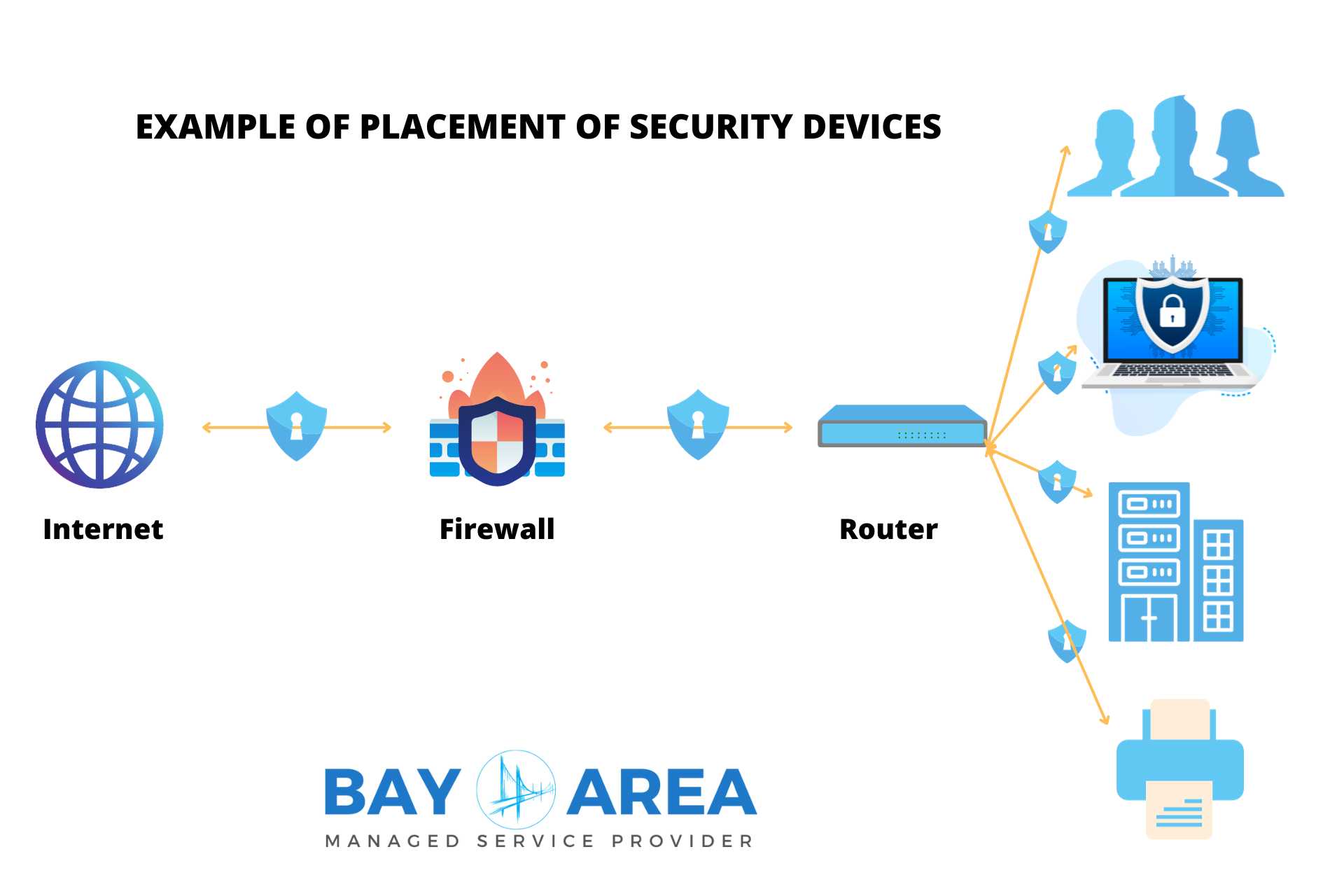10 Benefits of Network Security

What is Network Security?
Network security, implemented by a Managed Service Provider (MSP), refers to implementing measures to protect computer networks from unauthorized access, attacks, and damage. The primary goal of network security is to ensure the confidentiality, integrity, and availability of information by safeguarding the network infrastructure from various threats.
Key components and measures of network security include:
- Firewalls: Firewalls are a barrier between a trusted internal network and untrusted external networks (such as the Internet). They control and monitor incoming and outgoing network traffic based on predetermined security rules.
- Intrusion Detection and Prevention Systems (IDPS): These systems detect and respond to potential threats or security breaches. They monitor network and/or system activities for malicious activities or security policy violations.
- Virtual Private Networks (VPNs): VPNs enable secure communication over the Internet by encrypting data and creating a secure “tunnel” for data to travel through. This is crucial for secure remote access to networks.
- Antivirus and Antimalware Software: These programs help detect, prevent, and remove malicious software, including viruses, worms, and other types of malware.
- Authentication and Access Control: This involves implementing measures to ensure that only authorized individuals or systems have access to network resources. This includes the use of strong passwords, multi-factor authentication, and access control lists.
- Encryption: Encrypting data helps protect it from being accessed or intercepted by unauthorized parties. This is particularly important for sensitive information like financial transactions or personal data.
- Security Policies and Training: Establishing and enforcing security policies and providing regular training for users are essential components of network security. Users should be aware of best practices and potential security risks.
- Regular Software Updates and Patch Management: Keeping software, operating systems, and applications up to date with the latest security patches is crucial for addressing vulnerabilities and minimizing the risk of exploitation.
- Network Monitoring: Continuous monitoring of network activities helps identify unusual patterns or suspicious behavior, enabling prompt response to potential security incidents.
- Incident Response Planning: A well-defined incident response plan ensures organizations can respond effectively to security incidents, minimize damage, and restore normal operations.
Network security is a dynamic field that evolves to address new and emerging threats. It requires combining technology, policies, and user awareness to create a robust defense against cyber threats.
Call Us Today
Schedule a Free Initial Consultation by calling or texting to:
925.500.6286
10 Benefits of Network Security
12 Benefits of Network Security
- Network security provides several significant benefits for individuals, businesses, and organizations. Here are some key advantages:
- Confidentiality: Network security measures, such as encryption, help protect sensitive information from unauthorized access. This ensures that only authorized users can access and view confidential data, maintaining privacy.
- Integrity: Network security safeguards the integrity of data by preventing unauthorized modification, alteration, or corruption. It ensures that the information remains accurate and reliable.
- Availability: A secure network helps ensure the availability of services and resources by protecting against disruptions caused by cyberattacks or unauthorized access. This is crucial for maintaining business continuity and providing uninterrupted services.
- Protection Against Cyber Threats: Network security measures, including firewalls, antivirus software, and intrusion detection systems, help defend against a variety of cyber threats such as malware, ransomware, phishing attacks, and more.
- Compliance with Regulations: Many industries and organizations are subject to regulatory requirements regarding protecting sensitive data. Implementing network security measures helps ensure compliance with these regulations, avoiding legal and financial consequences.
- Risk Mitigation: Network security practices help identify and mitigate potential risks and vulnerabilities in the system. Organizations can reduce the likelihood of security breaches and associated damages by addressing these risks.
- Secure Remote Access: With the increasing trend of remote work, network security is crucial for providing secure remote access to organizational resources. Virtual Private Networks (VPNs) and other secure remote access solutions ensure that employees can connect to the network securely from different locations.
- Business Reputation: A strong commitment to network security contributes to a positive business reputation. Customers, partners, and stakeholders are more likely to trust organizations that prioritize the protection of sensitive information.
- Cost Savings: While implementing network security measures requires an initial investment, it can result in significant cost savings in the long run. Preventing security breaches and downtime can avoid the financial and operational costs associated with data breaches and recovery efforts.
- Productivity and Performance: A secure network contributes to improved overall system performance and user productivity. Users can work with confidence, knowing that their data and communications are protected, leading to a more efficient and productive work environment.
- Incident Response Preparedness: Network security practices include the development of incident response plans. Being prepared to respond to security incidents ensures that organizations can effectively handle and mitigate the impact of a breach.
In summary, network security is essential for safeguarding digital assets, maintaining trust, complying with regulations, and ensuring the smooth functioning of operations in an increasingly connected and digital world.

Comments are closed.